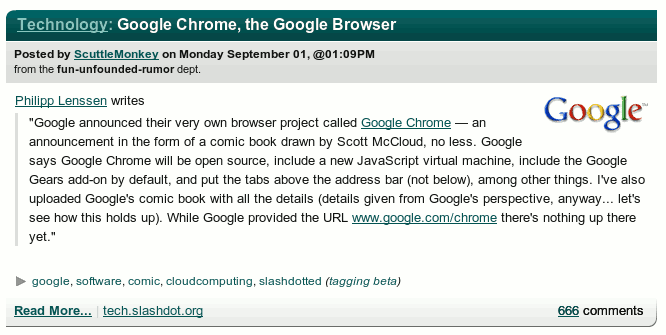Rather than looking at campaigns for specific browsers, I’m looking at a class of campaigns that are either promoting a group of browsers, or advocating against the current dominant player: Internet Explorer.
Browse Happy — the classic.
- Goal: Move users away from Internet Explorer.
- Target Audience: IE users.
- Promotes: Firefox. Also Safari, Opera, and… um… Mozilla. Hmm, someone needs to update that.
- Pitch: IE is dangerous.
- Method: Banners
- Goal: Keep multiple standards-compliant browsers viable.
- Target Audience: All users
- Promotes: Opera, Firefox, Safari. Also Flock, SeaMonkey, K-Meleon, Camino,etc.
- Pitch: Competition is good for everyone. See what’s out there.
- Method: Banners
End 6! (end6.org)
- Goal: Move people off of IE6
- Target Audience: IE6 users
- Promotes: Firefox, Opera, Safari, Flock, IE7
- Pitch: IE6 is outdated, buggy, and unsafe. Use something modern instead.
- Method: Overlay for IE6 visitors
Save the Developers (savethedevelopers.org)
- Goal: Move people off of IE6
- Target Audience: IE6 users
- Promotes: IE7, Firefox, Safari, Opera
- Pitch: Coding for IE6 is a pain. Stop putting us through that.
- Method: Animated drop-down at top of page for IE6 visitors
(Yeah, I’m catching up on old draft posts.)



